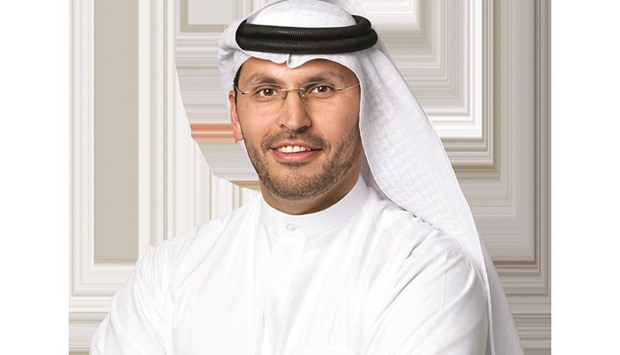Mubadala Development Co, the Abu Dhabi sovereign fund merging with International Petroleum Investment Co, said potential energy deals are more attractive after the slump in oil prices drove down asset prices.
“For someone who takes a long-term view, it’s an attractive time to invest in the industry,” Mubadala chief executive officer Khaldoon Mubarak said in an interview last week at his office in the UAE capital. “We as Mubadala are players in this industry. We will continue to invest in this industry, particularly in such a time where we find valuations at a low and attractive range.”
Abu Dhabi, holder of about 6% of global oil reserves, is cutting spending, tapping reserves and driving mergers at its state-owned companies as it confronts the halving in oil prices over the past two years. The deal with IPIC is set to create a global energy business that pumps more crude than Opec member Libya and would have total assets greater than ConocoPhillips, combining production operations at Mubadala with IPIC’s focus on refining and distribution.
After Saudi Arabia and Russia pledged on September 5 to cooperate to stabilise global markets – without announcing any specific measures to bolster prices – Mubarak said he’s seeking signs of better supply and demand equilibrium in the global oil industry. A proposal to freeze output was derailed in April over Saudi Arabia’s insistence that Iran participate in any accord.
“I hope the industry continues to correct itself, to get to a balance in which the pricing allows growth in the industry and continues investments,” he said. “There’s been a correction and the correction is running through its course. At some point, we will have to start seeing an improvement in the balance between supply and demand.”
Brent crude, a global pricing benchmark, has tumbled more than 55% from a 2014 high of $115.71 a barrel as the Organisation of Petroleum Exporting Countries boosted output to a record level to defend its market share against higher-cost suppliers, including US shale drillers.
Abu Dhabi surprised investors in June when it announced plans to merge Mubadala with IPIC and create a Middle East investing heavyweight with $135bn of assets, just weeks after announcing that it will combine lenders National Bank of Abu Dhabi and First Gulf Bank. The new fund will continue to invest in core Mubadala areas of energy, metals, technology, real estate, infrastructure, healthcare and aerospace, while expanding into new ones as part of plans to help diversify Abu Dhabi’s economy, Mubarak said.
“This story is not just about efficiency and diversification,” Mubarak, said, referring to the merger. “It’s also about growth, creating an industrial and investment powerhouse that has every intention to keep growing. This will be one of the largest mergers in business, but also with the ability to scale up.”
Mubadala and IPIC are working to complete the merger by the fourth quarter of this year or the first quarter of next, he said, declining to name the banks or consultancies working on the transaction. Mubarak – also chairman of the Abu Dhabi Executive Affairs Authority, which provides strategic-policy advice to the emirate – said the fund’s focus before the deal has been to navigate the global economic turbulence caused by China’s slowdown, slumping commodities and the UK’s decision to quit the European Union.
“It’s been a very challenging year, and that’s been reflected in the results of many companies,” Mubarak said. “The key for me, from a Mubadala perspective, is to ensure we continue to manage through these cyclical times from an economic perspective, manage the portfolio of Mubadala in an effective and efficient way.”
While stopping short of predicting further mergers in Abu Dhabi – analysts have suggested a possible combination between Abu Dhabi Commercial Bank and Union National Bank or more deals in the energy industry – Mubarak said the emirate has blazed a trail of consolidation and that more deals could follow.

Mubarak: Long-term investment view.
